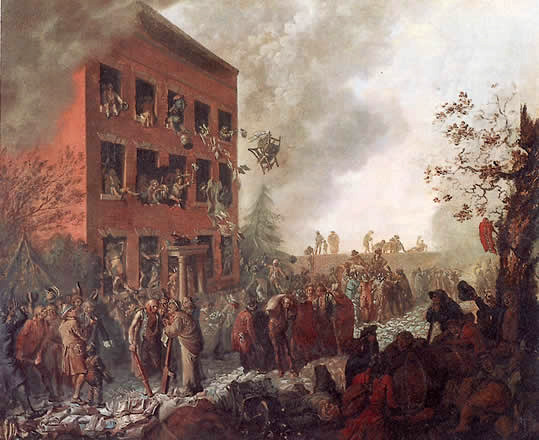"Why sneer at the intellectuals?"* / ὑπόμνημα punk music, left politics, and cultural history - previously found here. contact: gabbaweeks[at]gmail.com or ask Dublin, Ireland. mid-30s, history, politics & law graduate | @HC4N | Notes on Foucault and Zen | Cynicism and Parrhesia | HRO 2k9 | Hoover Genealogy Project *from the title of a review of Arthur Koestler's Arrival and Departure by Michael Foot, Evening Standard, Nov. 26, 1943.
Don't wanna be here? Send us removal request.
Text
First blog post of 2024, on a rabbit hole of translations and etymologies I was sent down on finding a word in a Psalm variously translated as "dung hill" or "ash heap".
Wiktionary is a great resource!
I see a lot of people complaining that Google search doesn't work any more, which is probably the case for anything that is vaguely commercial and/or SEO+GPT adjacent, but for obscure and esoteric queries it works pretty well for me
I need to add an addendum to the original post - was trying to work out why I thought that "stercorem" meant something scatological, when it doesn't have an major English derivatives (save for some medical terms) when I remembered it was of course due to Terry Pratchett's dog Latin: Stercus, Stercus, Stercus, Morituri Sum - "Oh Shit, Oh Shit, Oh Shit, I'm Gonna Die" - really the whole post is an ode to L-Space
0 notes
Text

Dr. Peter Paul Rubens @PP_Rubens Saint Anthony, being tempted. Because the possibility of dining on barbecued ear was really enticing to hermit saints! By Jan Mandijn, whose day was today. 12:56 AM · Oct 23, 2023
I don't think this is about (surprise!) the literal desirability of eating human flesh, but an allegory of the sensual temptations of gluttony and 'the flesh'. Notice also the female figure in the bottom right, which reminds of this detail in Dominicus Van Wijnen's depiction of the same topic.
9 notes
·
View notes
Text
RIP Matthew Perry
I read the whole of his memoir yesterday and wrote a post about it on my other blog.

156 notes
·
View notes
Text
"For the most formidable of international jurists today, the Finnish scholar Martti Koskenniemi, international law is best termed a hegemonic technique, in the Gramscian sense. For Gramsci, he notes, the exercise of hegemony always involved the successful representation of a particular interest as a universal value. That, certainly, the standard of civilization attempted, and in its heyday achieved, as the vocabulary of the ‘international community’ has typically done since. International law in that sense had never ceased to be an instrument of Euro-American power. But just because it offered an ostensibly universal discourse, it was open to appropriation and reversal, claiming it for other, wider and more humane interests." Perry Anderson, 'The Standard of Civilization', New Left Review 143, Sept/Oct 2023
Haven't read Koskenniemi in about 10 years now but he gave an important insight into the ambiguous meaning of (international) law, between the normative and prescriptive. Here of course - fitting neatly with current events - Anderson is taking an even more sceptical view through the lens of its cynical history.
3 notes
·
View notes
Text

"On the second anniversary of the fall of the Bastille, Priestley's house was looted and burned down by a mob (inspired by the King and the Church) that was enraged by Priestley's view of revolution." Priestley Riots - Wikipedia
An interesting piece of late 18th-century English social history I don't think I'd heard about before: in 1791, in Birmingham, the homes of many notable Dissenters - that, is Protestants who did not subscribe to or take oaths in the Established Church of England - were attacked, seemingly with the tacit support of local authorities.
I came across this as a passing mention in an episode of Jacob Bronowski's The Ascent of Man, where he explains the location of a preserved workshop of J.B. Priestley - the 'discoverer' of oxygen - in the US rather than England due to him fleeing to Pennsylvania. Noting that Priestley was not the friendliest of characters, but not explaining the reason behind his house being burned down in an illustrated engraving; though Wikipedia says "Priestley's determination to defend phlogiston theory and to reject what would become the chemical revolution eventually left him isolated within the scientific community", it was for eminently political rather than scientific reasons that the popular mob turned on him and his coreligionists.
Given what was to happen in Ireland toward the end of the same decade, the French-inspired and aided 1798 Rebellion, along with its brutal suppression, also famously involving Dissenter radicals - I find it intriguing that reactionary and religiously motivated political violence occurred in the English metropole provoked by the French revolution, beyond the merely intellectual responses of Edmund Burke.
1 note
·
View note
Text
Although Journeys of the Mind is a vivid and droll guide to Brown’s role in advancing the historiography of late antiquity, it is also a sustained and moving meditation on how historians of any faith cope with the strangeness of its past. Brown’s upbringing among a shabby genteel tribe of Anglican servants of the British Empire in Éamon de Valera’s clerical republic acquainted him not just with the plight of vanishing aristocracies but also with the “hard edges” of religion. The boundary between Protestant minority and Catholic majority in his native Dublin was invisible but always palpable. Yet the “tweedy philistinism” of Oxford seemed to ignore the fierce grip that beliefs exercise over persons, or else read it as an expression of other identities, such as ethnicity or social class.
I really enjoyed reading Peter Brown's 'The World of Late Antiquity' in university - didn't even know he was Irish.
1 note
·
View note
Text

Sony PlayStation 2 Controversial Lara Croft Advertisement (2000)
13K notes
·
View notes
Text
The task, then, is to rethink artificial intelligence not as a competitor to, but as an inorganic extension of actual intelligence. But putting an end to the ongoing mechanisation of human reason is not just a matter of adopting a better theory. It will first require that we “pull the emergency brake” on our runaway mode of production, instead of passively awaiting the mechanical overlords that – for anyone paying attention – have already arrived.”
Hegel against the machine - New Statesman
On the nature of intelligence in relation to embodied, situated reason and intentionality.
Also worth reading, a couple of recent Substack pieces:
Render Unto the Machine by L.M. Sacasas
On the relationship between institutions and human competencies, and how the idea of replacing humans through automation speaks largely to the robot-ification of our interactions already.
Setting time on fire and the temptation of The Button by Ethan Mollick
On the ouroboros nature of AI text generation and parsing potentially replacing much of the communication in the corporate world, and the 'crisis of meaning' that produces.
I've always been a bit sceptical of - or never properly understood - the argument that intelligence is fundamentally an "embodied" thing that can't simply be abstracted away from sensory experience and feelings, which probably says a lot about me. By contrast, I find quite seductive the idea that we do largely think in some sense like LLMs, by exploring the 'phase space' of our thoughts, and that we are just predicting the next word, phrase or token.
According to The Enigma of Reason by Hugo Mercier and Dan Sperber, what we consider to be reason can also be understood as post-facto rationalisation of our (unconscious decisions), which likely evolved as a means to facilitate communication and persuasion through the mechanism of being able to explain our thoughts.
A concept that's fascinated me since i first read about it is that from Will Davies of 'cyborg intermediaries' - "a type of cyborg who is able to mediate constantly between the capital at its fingertips and the quantitative data relayed by the market, without stopping to reflect consciously on what it is doing". The idea of the AI chatbot replacing the current 'knowledge worker' is like a further extension of this, both in that the intermediary themselves can be replaced and that conscious reflection, meaning or 'explainability' (a gap in AI knowledge) are removed from the equation.
4 notes
·
View notes
Audio
Missa Pro Defunctis: I: Requiem Aeternam - Orazzio Vecchi, Graindelavoix, Björn Schmelzer (2017)
For his latest Glossa CD with Graindelavoix, Björn Schmelzer takes his lead from the funeral rites for the Flemish Baroque painter Peter Paul Rubens in 1640 – which might well have encompassed the Requiem Mass by Orazio Vecchi as recorded here – to demonstrate the coexistence in Baroque Antwerp of two apparently contradictory, but interconnected facets.
One of these facets was the continuing presence of prima prattica polyphony; the city was a major centre for music printing and Vecchi’s Requiem was brought out there – as were works by other composers represented on this disc: George de La Hèle, Duarte Lobo and Pedro Ruimonte (the recording ends with three successive Agnus Deis!). The other facet is that of the image of Rubens’s art: full of energy, seductive, optimistic and scintillating. The Northern Baroque par excellence.
Orazio Vecchi Requiem - glossamusic.com
2 notes
·
View notes
Photo

Backhuysen, Ludolf, Christ in the Storm on the Sea of Galilee (1695)
Relating to Bach’s cantatas for the 4th Sunday after Epiphany, based around Matthew 8:23-27.
6 notes
·
View notes
Audio
JS Bach, Jesus schläft, was soll ich hoffen? (Jesus sleeps, what should be my hope?), BWV81: No. 1 Aria
Writing about Bach’s two cantatas for the 4th Sunday after Epiphany, focusing on the Gospel reading of Matthew 8:23-27 about Jesus calming the storm in the Sea of Galilee, questions of fear and faith, and the comparison (via Psalm 124 and its Lutheran reworking) with earlier Old Testament metaphors of God protecting against the flood of enemies
1 note
·
View note
Audio
Pierre de Manchichourt [1510-1564], Messe de requiem: Introït, performed by La Tempête and Simon-Pierre Bestion - Hypnos (Alpha Classics, 2022)
Heard on Radio: La Baroque from France Musique
If there is a concept of the ‘aural sublime’*, I think this is it - layers of sound sliding over each other, voices and (I think?) horns (their site lists ‘Instrumentalists: 1 cornet, 1 bass clarinet’) but always with the sense that what you’re hearing right now is exactly what you should be hearing...
* reader: yes there is: “Offering readings of canonical texts by Longinus, Dryden, Burke, Klopstock, Herder, Coleridge, De Quincey, and others alongside lesser-known figures, she shows how the literary sublime was inextricable from musical culture, from folksongs and ballads to psalmody, polychoral sacred music, and opera.”
1 note
·
View note
Text

Low January midday sun illuminating a fragmentary headstone in St. Kevin’s Park, Camden Row, Dublin
1 note
·
View note
Audio
JS Bach, Ich steh mit einem Fuß im Grabe (I stand with one foot in the grace), BWV153: No. 1 Sinfonia
Continuing my series of listening to Bach cantatas on the liturgical date they were originally composed for, with the third Sunday after Epiphany. Lots of emphasis on submission to God’s will via the Gospel reading of Matthew 8:9 (KJV: “And, behold, there came a leper and worshipped him, saying, Lord, if thou wilt, thou canst make me clean.”)
Somewhat unusually, this particular cantata opens with a purely instrumental Sinfonia, which (in this rendition anyway) has a melody that puts me in mind of something wistful you might hear from a Northern brass band in England.
Previous weeks:
2nd Sunday after Epiphany, BWV13, Meine Seufzer, meine Tränen (My sighs, my tears)
1st Sunday after Epiphany, BWV 32: Liebster Jesu, mein Verlangen (‘Dearest Jesus, my desire’)
1 note
·
View note
Audio
Kicking this off again in 2023: https://emptyfoucault.wordpress.com/2023/01/08/bach-after-epiphany/
Johann Sebastian Bach, Ich werdet weinen und heulen, BWV 103: Aria: Kein Arzt ist ausser dir zu finden - John Eliot Gardiner, Monteverdi Choir.
Starting a personal project where I listen to one of Bach’s cantatas on the Sunday on which it was originally meant to be performed, as determined by the Lutheran church calendar, and based around the Gospel reading for that week. Partly it’s a way to acquaint myself with more of his music in a regular - one might say disciplined - fashion, but it’s also because I want to encounter the work in some of its original context, with its reflective purpose. As part of that, I also read along with the text in parallel German-English translation here on this excellent website.
Last week I listened to BWV 85, Ich bin ein guter Hirt (I am a good shepherd), which got me thinking about pastoralism in the religious sense as well as the political inflection Foucault gives it, into the current discourse around biopolitics and precarity (as based on Isabell Lorey’s State of Insecurity: Government for the Precarious, which I’m reading currently). All of which I started writing up as a longer post on my other blog - continuing on from these musings on the “cybernetic pastorate” and metaphors for governance - but which I didn’t get to finish this week.
What strikes me the most listening to Bach in this manner is a powerful sense of cultural meaning - these were things and ideas that people really believed, or aspired to believe. Which is perhaps a trite thing to say from the perspective of a newly post-secular age (one in which evangelical Christianity is far from insignificant). I grew up attending weekly Anglican church services, including literal Sunday school, absorbing Bible stories like pretty much any other cultural reference - but the truly religious part of it never stuck. As much as I admired - and continue to do - the sentiments of the faith, I could not reconcile its literal creed with secular reason. But there remained an attachment to the Protestant culture - and a fascination with the concept of passionate belief.
2 notes
·
View notes
Text

Urban fractals
(Hatch Street Upper, Dublin - reflection of Earlsfort Terrace, Royal University of Ireland [1880] buildings)
1 note
·
View note
